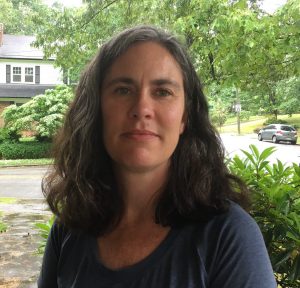By Kristin Collins
I’ve seen a lot of exonerations. They happen all the time. People — almost always Black men — released after years or decades in prison, sometimes on death row. Revelations about falsified evidence, coerced confessions, cops and prosecutors who lied to secure convictions. And then, media coverage of a joyous homecoming.
But it wasn’t until I saw Ronnie Long’s exoneration — after 44 years in prison for a rape he did not commit — that I began to truly understand how difficult it is to reclaim your freedom after wrongful imprisonment.
When I saw Ronnie Long openly express his heartbreak and fury, I realized how I’d expected exonerees to smile and be thankful for what they were given, rather than demanding acknowledgment of the life that was stolen from them.
When I saw Ronnie Long smoke a cigarette in front of a reporter’s video camera, blow out the smoke and say, “That’s freedom,” I realized how we pressure exonerees to appear perfect. In our society, the wrongfully convicted have to prove themselves worthy of freedom, just as Black people have to prove that they are well behaved enough not to be killed by police.

Long made me realize that I, too, had absorbed the idea that exonerees must be model citizens to earn our sympathy. As part of my job, I write and talk about death row exonerees all the time. But I never talk about the occasional ones who, after their release, turn to drugs or get arrested again.
Considering that most exonerees are sent home from prison with nothing — no counseling or other services, no apology for the trauma they endured, and barely enough money for bus fare — it’s a wonder this doesn’t happen more often. They are only granted compensation like Long’s if they receive a rare pardon of innocence from the governor. (The recent $75 million verdict for death row exonerees Henry McCollum and Leon Brown was the rarest of exceptions, not the rule.)
It felt uncomfortable to see Long’s raw honesty and grief. Maybe that’s why a reporter, rather than acknowledging the enormity of the trauma our “justice” system inflicted on Long, instead branded him as angry and “intent on settling old scores” — all because he dared to say that 44 years of his life were worth more than the $750,000 the state granted him.
Watching Long, I thought about Darryl Hunt, who after his exoneration in 2004, joined the movement to end the N.C. death penalty. He was tried capitally and spent 19 years wrongfully imprisoned. Up until his death in 2016, Darryl did everything we advocates asked of him, and he did it with a smile.
Over and over, Darryl calmly told his story and said he forgave the people who fought to keep him in prison long after his innocence was clear. I believe that Darryl thought forgiveness was the path to freedom, but I also wonder how much pain and anger he had to swallow to show us that serene, smiling face as he relived his trauma. Did he think that was what we expected of him? Did our unexamined assumptions contribute to his suicide?
I admit that, until recently, Ronnie Long faded into the crowd for me. Yet another exoneree to add to the list. But then I heard him speak in that stunning video.
I heard him tell the story of his parents, who died with his name on their lips, without seeing him freed. I watched him look into the camera and say, with his eyes full of tears, “750 thousand dollars … That’s bullshit. You take my life, then you gon’ tell me what that’s worth?”
Ronnie Long is unapologetic about his desire for more from the state of North Carolina than what we’ve given him. He’s asking for money, but he’s also taking back his power.
He wants — and deserves — the power to determine what his life is worth. He wants the power to tell his own story, to put words to all he has lost, and to make clear who took it from him.


